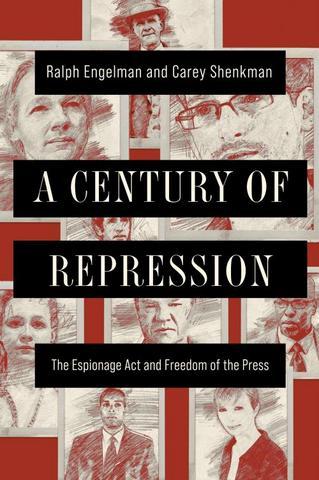
By Ralph Engelman and Carey Shenkman
A Century of Repression offers an unprecedented and panoramic history of the use of the Espionage Act of 1917 as the most important yet least understood law threatening freedom of the press in modern American history. It details government use of the Act to control information about U.S. military and foreign policy during the two World Wars, the Cold War, and the War on Terror. The Act has provided cover for the settling of political scores, illegal break-ins, and prosecutorial misconduct. The cases of Eugene Debs, John S. Service, Daniel Ellsberg, Chelsea Manning, Edward Snowden, and Julian Assange, among others, reveal the threat posed to whistleblowers, government critics, and journalists alike. The treatment of the Act’s trajectory also offers new perspectives on American liberalism as well as the evolution of the FBI and the civil liberties movement in the twentieth and twenty-first centuries.
Ralph Engelman is senior professor emeritus of journalism and communication studies at Long Island University, Brooklyn, and member of IAMCR.
Carey Shenkman is a constitutional lawyer and litigator focusing on freedom of expression, transparency, and technology.
The above text is from the publisher’s description of the book:
Title: A Century of Repression: The Espionage Act and Freedom of the Press
Authors: Ralph Engelman and Carey Shenkman
Published: 2022
Pages: 344
Publisher: University of Illinois Press